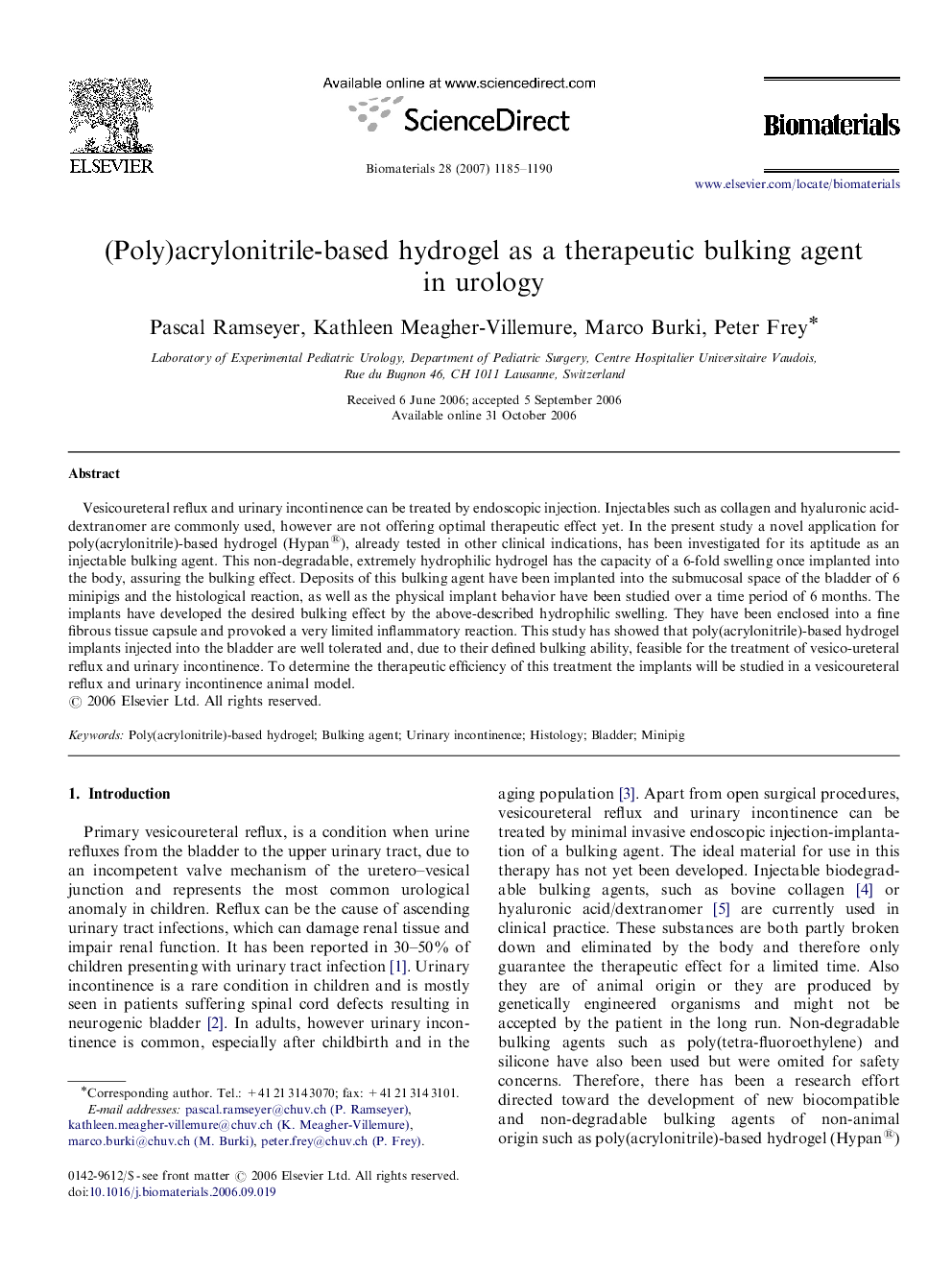| Article ID | Journal | Published Year | Pages | File Type |
|---|---|---|---|---|
| 10436 | Biomaterials | 2007 | 6 Pages |
Vesicoureteral reflux and urinary incontinence can be treated by endoscopic injection. Injectables such as collagen and hyaluronic acid-dextranomer are commonly used, however are not offering optimal therapeutic effect yet. In the present study a novel application for poly(acrylonitrile)-based hydrogel (Hypan®), already tested in other clinical indications, has been investigated for its aptitude as an injectable bulking agent. This non-degradable, extremely hydrophilic hydrogel has the capacity of a 6-fold swelling once implanted into the body, assuring the bulking effect. Deposits of this bulking agent have been implanted into the submucosal space of the bladder of 6 minipigs and the histological reaction, as well as the physical implant behavior have been studied over a time period of 6 months. The implants have developed the desired bulking effect by the above-described hydrophilic swelling. They have been enclosed into a fine fibrous tissue capsule and provoked a very limited inflammatory reaction. This study has showed that poly(acrylonitrile)-based hydrogel implants injected into the bladder are well tolerated and, due to their defined bulking ability, feasible for the treatment of vesico-ureteral reflux and urinary incontinence. To determine the therapeutic efficiency of this treatment the implants will be studied in a vesicoureteral reflux and urinary incontinence animal model.
